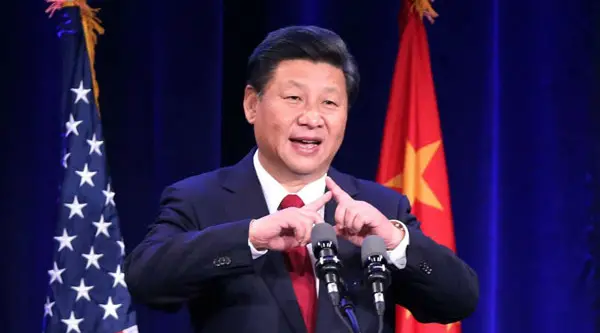(CHINA DAILY)China's hectic diplomatic year saw President Xi Jinping spend 42 days conducting eight trips abroad, as China's proposed economic initiatives bore fruit and resulted in ever-increasing recognition of the country's enhanced global role.
The initiatives included the Belt and Road Initiative and the Asian Infrastructure Investment Bank, both of which won widespread acclaim.
China's entry into the special drawing rights currency basket of the International Monetary Fund in November also reflected the growing strength and influence of the world's second-largest economy.
When asked about China's diplomatic highlights over the past year, senior diplomats and experts noted China's greater say in issues of global importance, especially on the economic front.
Many referred to London's role in the process as Britain took the lead among Western countries in joining the Asian Infrastructure Investment Bank despite US objections, and it responded positively to the Belt and Road Initiative.
Foreign Minister Wang Yi said, "China's status and influence in the international community are undergoing obvious changes".
"I think this important development in China-UK relations actually indicates the development of China's relations with Western countries," Wang said while summarizing the diplomatic year on Dec 20 during his visit to Cyprus.
Chen Fengying, a senior researcher of the world economy at the China Institute of Contemporary International Relations, said London's endorsement of the AIIB and arrangement of Xi's visit to the UK in October have "served as ice-breaking steps in China's cooperation with Western countries".
"China, when shouldering its duty as a major country and an emerging economy, has been working on resolving problems and proposing designs for new mechanisms and frameworks," Chen said, adding that this has also won the recognition of the International Monetary Fund and the World Bank.
Shi Yinhong, a professor of international relations at Peking University, said that starting from the fall of last year, China's foreign affairs strategy has focused more on economic aspects.
In addition to the Belt and Road Initiative and the AIIB, China accomplished successful negotiations on a range of bilateral free-trade agreements, including those with South Korea and Australia, and China is advocating the Free Trade Area of the Asia-Pacific, Shi noted.
Observers said China's rising influence also contributed to boosting peace talks and the process of reconciliation in a number of hot spots.
China is among the six countries that successfully reached a comprehensive deal in July with Iran on resolving its nuclear program, and Beijing has maintained contacts with both the Syrian government and the opposition.
On Thursday, Syrian Foreign Minister Walid al-Moallem told reporters in Beijing that the Syrian government is ready to participate in peace talks in Geneva aimed at ending the civil war.
Pang Zhongying, dean of the School of International Relations at Sun Yat-sen University in Guangzhou, Guangdong province, said China cannot stay out of international affairs when other permanent members of the UN Security Council are pushing for political settlements, adding that China's role is within the UN framework and authorization.
China is adapting itself to the changing world, and "it must play a leading role in boosting multilateral coordination efforts", Pang said of China's proposing the AIIB and hosting the Group of 20 summit in 2016.
SuGe, president of the China Institute of International Studies, said China's diplomacy this year has seen it fine-tune its comprehensive approach.
The country is providing more public solutions to tackling global challenges, cementing its partnership with developing countries and "participating in and leading multilateral diplomatic processes", Su said.
From Pakistan to South Africa, President Xi boosted global cooperation, development with broad range of agreements
1 President Xi Jinping visited Pakistan and attended the Asian-African Summit and activities commemorating the 60th anniversary of the Bandung Conference in Indonesia from April 20 to 24.
Highlight: Xi signed 51 documents in Islamabad, among which more than 30 were to promote the China-Pakistan Economic Corridor.
2 Xi visited Russia, Kazakhstan and Belarus from May 7 to 12.
Highlight: Cooperation was boosted on connecting the Silk Road Economic Belt and the Eurasian Economic Union.
3 The president attended the BRICS Summit and the Shanghai Cooperation Organization leaders' meeting in Ufa, Russia, from July 8 to 10.
Highlight: More than 20 documents were signed to enhance cooperation.
4 Xi visited the United States and attended UN summits from Sept 22 to 28.
Highlight: Issues were addressed ranging from the economy to international and regional challenges. Xi announced that China was joining a new UN peacekeeping readiness system and providing free military aid of $100 million to the African Union.
5 The president visited the United Kingdom from Oct 19 to 23.
Highlight: A China-UK comprehensive strategic partnership was announced, and commercial deals that totaled 40 billion pounds ($60 billion) were signed.
6 Xi visited Vietnam and Singapore from Nov 5 to 7.
Highlight: Documents were signed with Singapore to promote connectivity, trade and construction related to the Belt and Road Initiative.
7 Xi attended the G20 Summit in Antalya, Turkey, and the APEC Economic Leaders' Meeting in Manila, the Philippines, from Nov 14 to 19.
Highlight: Xi proposed boosting global governance while in Antalya and offered proposals on boosting the regional economy, connectivity and sustainability in Manila.
8 The president attended the United Nations Climate Change Conference in Paris on Nov 29 and 30 and visited Zimbabwe and South Africa from Dec 1 to 5.
Highlight: At the Forum on China-Africa Cooperation Summit in South Africa, Xi said China would provide $60 billion in the next three years to support 10 cooperation plans with Africa.
 简体中文
简体中文

